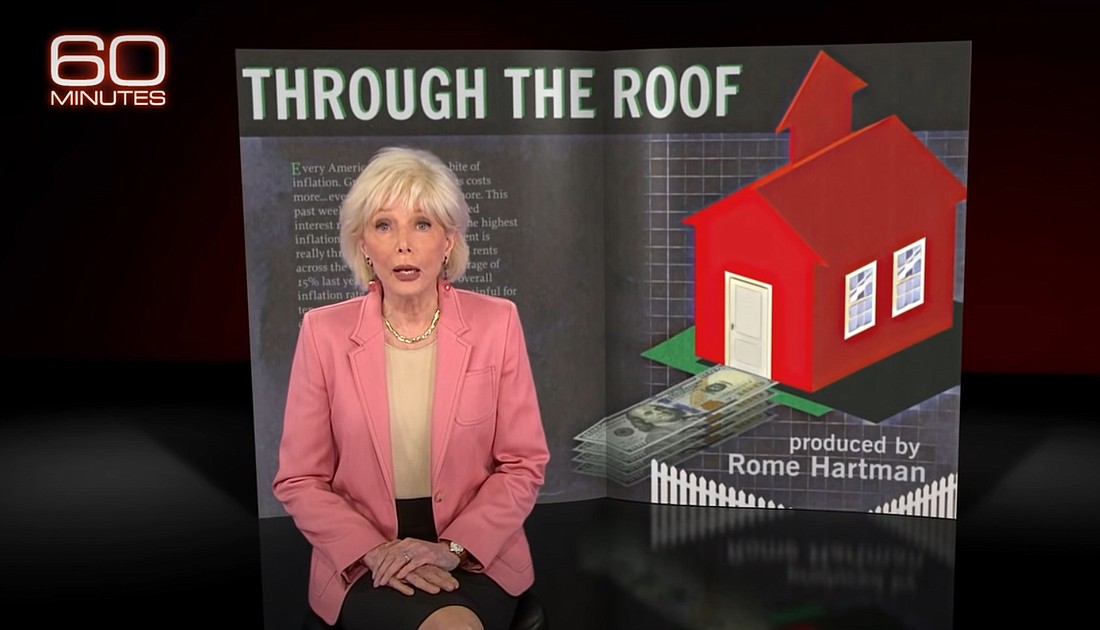
Jacksonville was in the news March 20 when CBS news show “60 Minutes” used the city as the lead example of residential rental cost increases.
Rents rose nationally in 2021 by 15% but increased 31% in Jacksonville, according to the report, compared with 35% in New York City and 29% in Portland, Oregon, which are much denser and walkable cities.
The U.S. Census reports that on average, renters across the nation are spending half their income on rent.
The Jacksonville couple featured on the broadcast were told their $1,000 monthly rent was increasing to $1,400. The couple checked 30 other apartments of similar quality and found that rents were $1,300 to $1,400. They negotiated a $300 increase.
There are reasons for the rises, along with signs of stabilization.
First is the national housing shortage. According to “60 Minutes,” the U.S. needs another 4 million homes to meet demand. When mortgage lending was found to be a major contributor to the 2008 recession, the housing industry did not rebound as quickly as other sectors.
There were fewer houses built during the decade of the 2010s than any previous decade back to the 1960s.
Even as construction companies and developers try to build their way out of a shortage, they face another problem.
“There are 400,000 construction jobs open nationwide,” said Jessie Spradley, executive officer of the Northeast Florida Builders Association .
During the recession, there was talk of people being hesitant to buy a house after seeing so many others face foreclosure.
Then it was thought that young people wanted the freedom to move from job to job. Owning a home was seen as an anchor.
However, during the pandemic, a substantial portion of the workforce could work remotely. Now, a worker can change jobs without moving.
That provides a new group of buyers as millennials want to move into their own houses.
But now homes often are sold as soon as they come on the market.
“Our members are telling us that they no longer need a traditional ‘Parade of Homes’ show,” Spradley said.
“We don’t have the models to show and we don’t need the help in sales.”
The “60 Minutes” report stated that Redfin, a national real estate company that tracks real estate trends, found that starter homes costing about $300,000 stay on the market for as little as an hour.
Companies like Tricon Residential, Invitation Homes and American Homes 4 Rent pay the asking price – in cash.
The companies specialize in renting the properties, which takes inventory off the market for traditional homebuyers.
A Tricon representative showed before and after pictures of a house. He said that after a purchase the company spends $15,000 to $25,000 in upgrades. Also, Tricon renters have a company-owned maintenance team to service their home when problems arise.
The Tricon spokesman said on any given week the company may list 200 to 300 homes for rent around the country and receives 10,000 leasing inquiries about their availability.
There are signs of moderation, however.
“The rental market, as well as the for-sale market, remains challenging in terms of increasing prices for both tenants and buyers due to restricted inventory and continued strong demand,” said Mark Rosener, 2022 Northeast Florida Association of Realtors president.
“We are seeing signs that the median price for both have begun to stabilize with moderate increases month over month since November 2021. Typically, spring brings additional listings to the market and should help to continue this moderation trend.”
For now, the first-time homeowner is becoming a first-time home renter as people in their 30s lack $300,000 in cash to buy a home. They face student loan debt and other expenses, like car payments. With higher rents, it can be challenging to save money for a down payment on a house.
“Homeownership is increasingly out of reach,” said “60 Minutes,” quoting a line from Tricon materials.